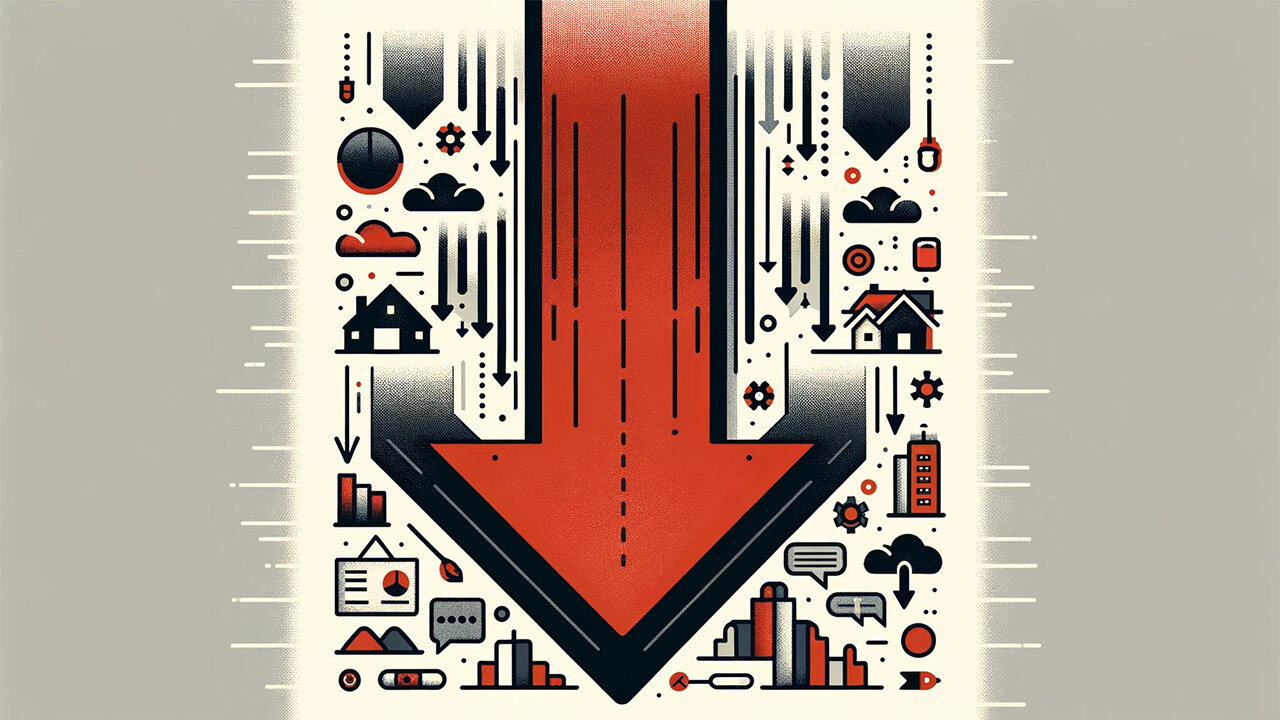We share verified earning schemes daily on Telegram.
In our Telegram channel, you'll find crypto signals, insider info on HYIPs, combo deals for tappers, and coin giveaways. Only verified earning methods without fluff.
Deflation is a term that is often mentioned in economic news but is not always understood. Imagine that your favorite sneakers, which cost 15,000₽ a year ago, can now be bought for 12,000₽. Sounds tempting, right? But it's not that simple.
In this article, we will cover: what deflation is, its types, causes, and consequences, as well as how economies deal with it.
What is Deflation
Deflation is a decrease in the overall level of prices for goods and services. The opposite of inflation.
Deflation cannot be considered a good thing, although many ordinary consumers think so. If this process drags on, the consequences for the economy can be very severe.
Types of Deflation
Deflation is divided into two types, distinguished by economic consequences:
- Dangerous;
- Good.
2.1. Dangerous Deflation
Deflation, typical of an economic downturn, has the following characteristics:
- Emergence of a deflationary spiral: prices decrease, expensive goods remain unsold as buyers expect further price drops. This leads to a decrease in economic growth and exacerbates deflation. In monetary terms, this is manifested by deposit closures, capital outflows from banks, and a reduction in consumer spending.
- Decrease in economic indicators: reduction in the cost of production, decrease in wages, and a decrease in the volume of produced goods.
- Refusal of consumer loans.
First and foremost, deflation affects banking activities and, in the absence of government regulation, spreads to other sectors.
2.2. Good Deflation
A favorable situation is considered a sustainable increase in enterprise efficiency, a consistent reduction in production costs, and an increase in competition. In this situation, to attract buyers during deflation, prices are reduced without cutting jobs and wages.
Understanding the Causes of Deflation
Let's talk about the factors causing deflation. The factors may seem disparate, but collectively they can seriously impact the economy and lead to deflation. The following can be noted:
- Government money regulation. Imagine that the government wants to strengthen the national currency. It starts actively buying foreign currency, such as dollars. This leads to a decrease in cash in circulation, and their value increases. This, in turn, leads to a decline in product prices.
- Reduction in lending. When banks face even low inflation, they can lower loan interest rates. This sounds good for borrowers, but for banks, it means lower income. As a result, they issue fewer loans, money becomes more expensive, and this again leads to price decreases.
- Overproduction of goods. If there is too much supply on the market, and demand does not increase, producers are forced to lower prices. This is a classic case of excess supply over demand.
- Investment trends. Sometimes people start actively investing money in specific investments, such as stocks. This can lead to the withdrawal of money from the economy, an increase in the value of money, and, consequently, a drop in prices for other goods and services.
Consequences of Deflation
You might think that falling prices are good, but it's not that simple. Let's see what really happens during deflation:
- Impact on Business. When prices fall, company incomes decrease. This can force them to reduce production and even close some businesses. As a result, unemployment increases, and economic activity decreases.
- Debt Issues. During deflation, the real value of debts increases. This means that both companies and ordinary people find it more difficult to repay their debts.
- Decrease in Consumer Spending. Consumers start spending less, expecting further price drops. This leads to further sales and revenue reductions for companies.
- Slowdown in Economic Growth. Reduction in investments and production capacity can cause a recession. This creates a negative cycle that is difficult to break.
- Loss of Confidence. When prices fall, consumers and investors may start losing confidence in the economy, worsening the situation.
- Impact on Investments and Banking System. Deflation increases risks for investors and worsens the availability of credit, negatively affecting economic development.
How to Economically Deal with Deflation
How to combat this type of deflation
- Interest Rate Regulation. Governments and central banks can lower interest rates to stimulate borrowing and investment. This helps increase the amount of money in circulation and supports economic activity.
- Fiscal Stimulus. The government can increase its spending or reduce taxes to stimulate economic activity. This may include infrastructure projects that create jobs and improve the economic climate.
- Business Support. Governments can provide financial assistance to businesses, especially small and medium-sized ones, such as subsidies, tax breaks, or preferential loans.
- Currency Policy. Sometimes governments may intervene in the currency market to stabilize the national currency, helping regulate the level of deflation.
- Innovative Business Approaches. Companies need to look for new ways to attract customers, such as through digital platforms or unique marketing strategies.
- Collaboration. Cooperation between the government, businesses, and consumers can help overcome deflation. For example, creating public initiatives to support local production and consumption.
Conclusion
As you can see, deflation is not just a temporary price drop. It is a complex phenomenon with serious consequences for the entire economy.
Stay informed, plan your finances wisely, and remember that information is power!
In this article, we covered the definition of the term deflation, its types, causes, consequences, and how to protect yourself from it.
If you have any questions after reading the article, feel free to ask them in the comments!
We hope the article was helpful to you. Wishing everyone successful and profitable investments!








Information
Users of Гости are not allowed to comment this publication.